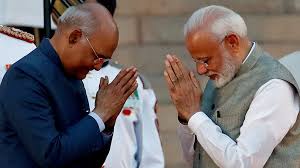Memorization of information can be a powerful tool. There’s essentially zero need to be a genius to ace an exam. All you need is some basic memorization techniques and the right tools. In this article, you will understand how to Memorize the Cabinet Ministers of India—it is possible! The reason why this skill is so important is that it can help you in competitive exams. Whether you’re looking to get into a top college or want to score higher on your IQ tests, knowing the cabinet ministers of a country can come in handy.
In competitive exams, questions based on the list of cabinet ministers of India are quite common. This is because these ministers have considerable influence over various sectors of the country. It is recommended to study the pattern of questions asked in an English-medium examination conducted by Indian Railways. The exam covers English grammar, composition and literature, Indian history and culture, railway economics etc.
Such exams generally consist of 44 questions and were primarily based on the list of cabinet ministers of India. The most common topic was political information (27 questions), followed by economic subjects (16 questions). No other topic was mentioned more than ten times.
Simple strategy
To start memorizing, work out an essential list of all the members. The next step is to create specific flashcards featuring information about each minister. For example, one flashcard might feature the minister’s name, gender, political party, and ministerial portfolio.
Once you have created your cards, be sure to review them regularly. This will help you build a strong memory for the card information and make it easier to recall when studying for an exam.
Who are they?
They are the executive head of the Government of India. They comprise members, including the Prime Minister and Deputy Prime Minister.
The Benefits of Memorizing a List of Cabinet Ministers
Memorizing the list will also help you better understand the government’s policies and how they relate to each other. Additionally, knowing the names can give you an advantage when asking questions about Indian government policy during an interview or exam.
How to Use Memory Techniques for Competitive Exams
1. Rearrange the list in your head – Start by grouping the cabinet ministers by department (e.g., Home Affairs, Finance, Agriculture), then think about each group. Try to recall each minister’s name and what department they are in by simply hearing it aloud or seeing it written down.
2. Repetition helps – Once you have learned each minister’s name and what department they are in, try repeating the information out loud as often as possible. This will help embed the information in your memory more effectively.
3. Make associations – Next, think about associated words and phrases that may help you remember the cabinet ministers better.
Conclusion
It is important to distinguish between the various ministers and remember their critical roles in the government. This can be done by studying the biography of each minister, learning about their policies, and scrutinizing their speeches and activities in parliament. By using a variety of memory techniques, such as creating mnemonic devices or repeating information out loud, you can increase your chances of remembering the details. Memorizing can help you in competitive exams.

